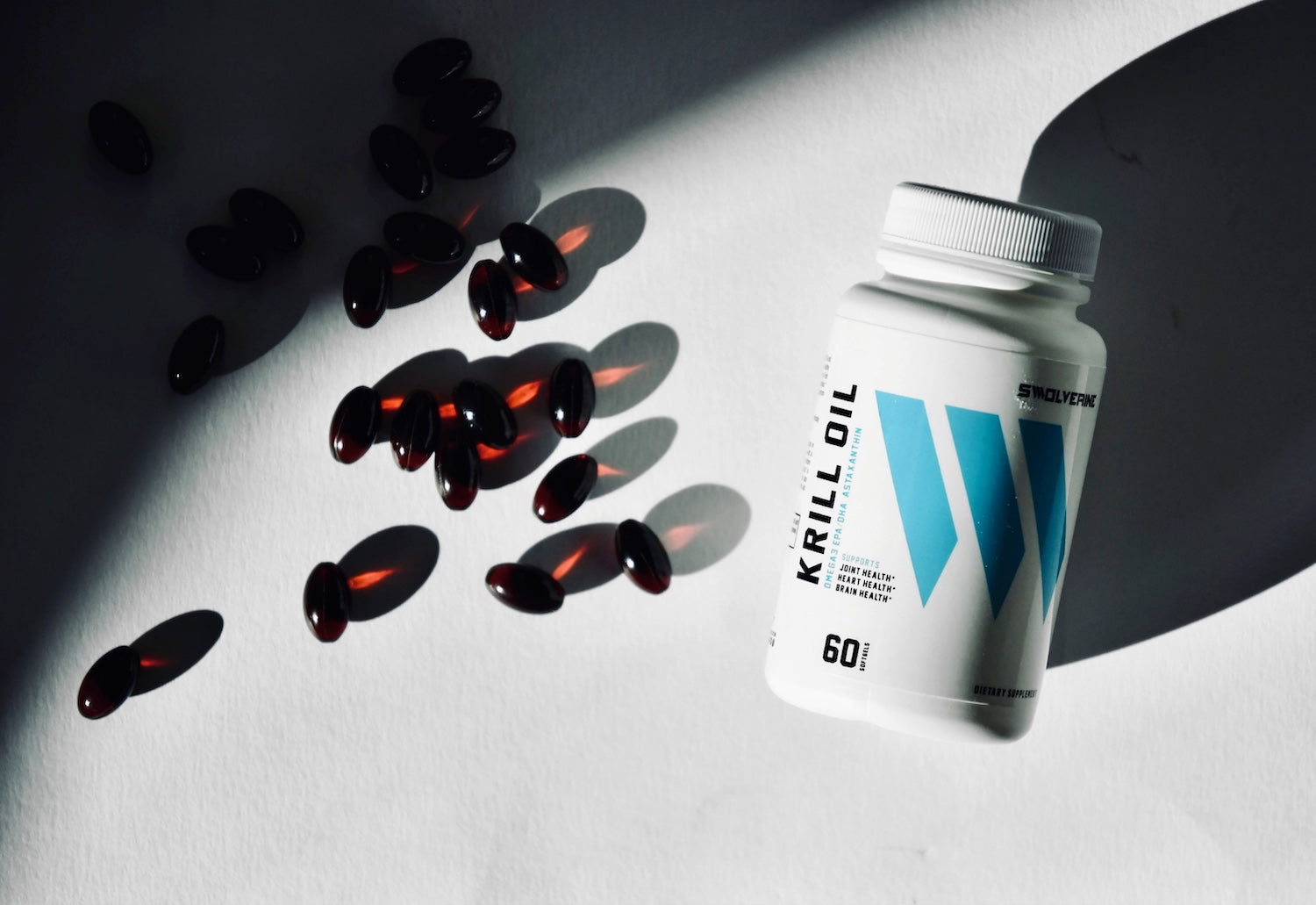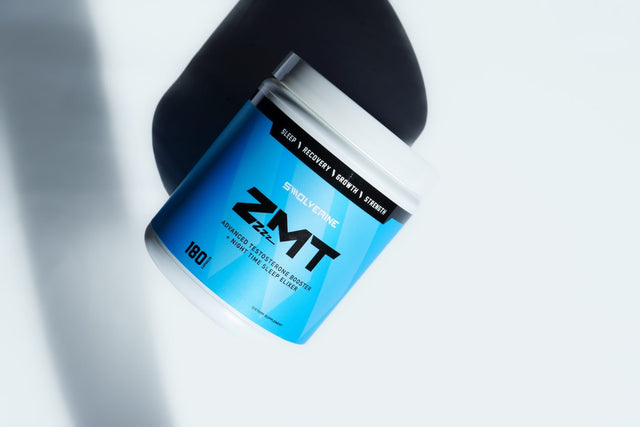When it comes to omega-3 fatty acids, EPA and DHA often take center stage, but understanding their distinct roles is crucial for anyone seeking optimal health. While both are celebrated for their numerous benefits, including heart health, brain function, and anti-inflammatory properties, they each bring unique advantages to the table. EPA, or eicosapentaenoic acid, is known for its potent anti-inflammatory effects, making it a powerhouse for cardiovascular health. On the other hand, DHA, or docosahexaenoic acid, plays a pivotal role in brain development and function, supporting cognitive health throughout life.
In this article, we will dive deep into the differences between EPA and DHA, explore their specific health benefits, and help you make informed choices about incorporating these essential nutrients into your diet.
Whether you're a health enthusiast or simply looking to improve your wellness, understanding these omega-3s is your first step toward a healthier future.
EPA vs DHA: Understanding the Difference Between These Vital Omega-3s
What Are EPA and DHA?
Omega-3 fatty acids are essential fats that the human body cannot synthesize on its own. Among the most critical for human health are eicosapentaenoic acid (EPA) and docosahexaenoic acid (DHA). These two long-chain omega-3s are predominantly found in marine sources such as fatty fish, algae, and certain types of seaweed.
EPA and DHA are integral components of cell membranes throughout the body and are highly concentrated in the brain and heart. Understanding the distinct roles and benefits of these fatty acids is essential for enhancing overall wellness and reducing chronic disease risk.
Chemical Structures and Biological Functions
EPA and DHA differ in structure and function.
-
EPA: 20-carbon chain with five double bonds
-
DHA: 22-carbon chain with six double bonds
These structural nuances impact how each fatty acid functions in the body:
-
EPA is primarily known for its anti-inflammatory effects.
-
DHA is critical for brain development, cognitive performance, and visual function.
📷 Image
Image Source: FreeImages
Can the Body Make EPA and DHA?
The human body can convert a small portion of alpha-linolenic acid (ALA)—found in plant-based foods like flaxseeds, chia seeds, and walnuts—into EPA and DHA. However, conversion efficiency is low, often less than 10%, according to a study published in The American Journal of Clinical Nutrition (Brenna et al., 2009).
As a result, it’s essential to obtain EPA and DHA through dietary sources or high-quality omega-3 supplements, particularly for individuals following plant-based or low-seafood diets.
The Key Differences Between EPA and DHA
1. Inflammation and Immune Support: EPA’s Role
EPA plays a central role in the production of eicosanoids, signaling molecules that help regulate:
-
Inflammation
-
Immune response
-
Blood clotting
-
Cardiovascular function
By reducing systemic inflammation, EPA may help lower the risk of chronic diseases, including heart disease, arthritis, and metabolic syndrome (Calder, 2017, Biochemical Society Transactions).
2. Brain, Eye, and Nervous System Health: DHA’s Role
DHA is the dominant omega-3 fatty acid in the brain and retina. It comprises:
-
~40% of polyunsaturated fatty acids in the brain
-
~60% in the retina
DHA is essential for:
-
Neural membrane fluidity
-
Cognitive development
-
Learning and memory
-
Visual processing
A study published in Nutrients highlights DHA’s pivotal role in early brain development and aging cognition (Dyall, 2015).
Dietary Sources of EPA and DHA
Marine-Based Sources (Best Bioavailability)
-
Salmon
-
Mackerel
-
Sardines
-
Anchovies
-
Krill oil
-
Algae oil (plant-based DHA source)
Plant-Based Sources (ALA only)
-
Flaxseeds
-
Chia seeds
-
Walnuts
-
Hemp seeds
Note: Plant-based sources do not contain EPA or DHA directly. Conversion from ALA is inefficient, so supplementation or marine sources are recommended for adequate intake.
Which One Do You Need More—EPA or DHA?
Your individual health goals may determine which omega-3 you need more of:
| Goal | Recommended Focus |
|---|---|
| Reducing Inflammation | EPA |
| Heart Health | EPA + DHA |
| Cognitive Support | DHA |
| Pregnancy & Infant Development | DHA |
| Eye Health | DHA |
Final Thoughts: Why Both EPA and DHA Matter
Both EPA and DHA are vital for optimal health, but their functions differ significantly. Whether you're aiming to reduce inflammation, boost brain performance, or support heart health, incorporating both forms of omega-3s into your routine is key.
For optimal results, consider a high-quality omega-3 supplement that provides a balanced ratio of EPA and DHA, especially if your diet lacks consistent marine sources.
📘 Related Reading:
Krill Oil vs. Fish Oil: Which Omega-3 Is Better for You?
Top 10 Workout Recovery Supplements Backed by Science
The Health Benefits of EPA and DHA: Why These Omega-3s Matter
Health Benefits of EPA
1. Anti-Inflammatory Effects
EPA is widely recognized for its potent anti-inflammatory properties. It reduces the production of inflammatory eicosanoids and cytokines, helping to alleviate symptoms of chronic inflammatory conditions such as:
-
Rheumatoid arthritis
-
Inflammatory bowel disease (IBD)
-
Psoriasis
According to a review published in Prostaglandins, Leukotrienes and Essential Fatty Acids, EPA supplementation significantly reduces markers of inflammation in patients with inflammatory disorders (Calder, 2010).
EPA’s anti-inflammatory effects also extend to cardiovascular protection by preventing atherosclerosis, a condition marked by plaque buildup in the arteries that can lead to heart attack and stroke.
2. Mental Health and Mood Support
EPA has shown promising benefits for mental health, particularly in reducing symptoms of:
-
Depression
-
Anxiety
-
Mood disorders
Studies suggest that EPA may be more effective than DHA in treating major depressive disorder. A meta-analysis in Molecular Psychiatry found EPA-predominant formulas to be significantly more effective than placebo in alleviating depressive symptoms (Sublette et al., 2011).
These effects are believed to stem from EPA’s ability to modulate neuroinflammation and support neurotransmitter function, helping maintain mental well-being.
3. Cardiovascular Health
EPA contributes to heart health through several mechanisms:
-
Reduces triglyceride levels
-
Improves endothelial function (the inner lining of blood vessels)
-
Regulates blood clotting
Lowering triglycerides can reduce the risk of atherosclerosis and cardiovascular events. In fact, the REDUCE-IT trial found that high-dose EPA supplementation significantly reduced the risk of major cardiovascular events in high-risk patients (Bhatt et al., 2019, New England Journal of Medicine).
Improved endothelial function also supports healthy blood pressure and blood flow, further enhancing heart health and vascular resilience.
Health Benefits of DHA
1. Brain Health and Cognitive Function
DHA is essential for cognitive performance and brain structure. It is a primary structural component of brain cell membranes and helps maintain:
-
Neural plasticity
-
Neurotransmitter activity
-
Membrane fluidity
DHA supports memory, focus, and learning. Higher blood levels of DHA have been associated with a reduced risk of cognitive decline and neurodegenerative diseases such as Alzheimer’s disease, according to research in Nutrients (Dyall, 2015).
2. Visual Development and Eye Health
DHA is also a major component of the retina, specifically the photoreceptor cells responsible for converting light into visual signals. It plays a key role in:
-
Infant visual development
-
Maintaining visual acuity in adults
-
Reducing the risk of age-related macular degeneration (AMD)
A study published in Investigative Ophthalmology & Visual Science found that DHA supplementation improved retinal health and helped prevent AMD progression (SanGiovanni et al., 2009).
3. Cardiovascular Protection
Like EPA, DHA also:
-
Lowers triglyceride levels
-
Improves endothelial function
-
Enhances plaque stability
Although EPA is more anti-inflammatory, DHA plays a complementary role in cardiovascular health by maintaining the integrity of cell membranes and supporting anti-inflammatory responses within heart tissues.
Combining EPA and DHA in your diet or supplement regimen provides synergistic benefits, supporting everything from mood and memory to heart and joint health.
💡 Pro Tip: For the most bioavailable form of EPA and DHA, choose krill oil or triglyceride-form fish oil supplements that deliver a balanced ratio, or talk with your healthcare provider about optimal dosing for your specific needs.
Sources and Recommended Intake of EPA and DHA
Sources of EPA and DHA
Fatty Fish and Whole Food Sources
The most effective dietary sources of EPA and DHA are fatty fish such as:
-
Salmon
-
Mackerel
-
Sardines
-
Anchovies
These fish contain high concentrations of bioavailable omega-3s, making them ideal for regular consumption to meet your daily EPA and DHA needs. According to the National Institutes of Health Office of Dietary Supplements, these fish offer the most efficient form of omega-3s that the human body can use directly (NIH ODS, 2022).
Fish Oil Supplements
For individuals who don’t eat enough fatty fish, fish oil supplements are a popular and convenient option. These supplements are available in multiple forms:
-
Softgel capsules
-
Liquid oils
-
Triglyceride or ethyl ester forms
Choosing a high-quality fish oil is essential. Look for brands that undergo third-party testing for purity, potency, and the absence of contaminants such as mercury, PCBs, and dioxins. Certifications from organizations like IFOS (International Fish Oil Standards) or NSF are good indicators of product quality.
Algal Oil Supplements (Vegan-Friendly)
For vegetarians and vegans, algal oil is a sustainable, plant-based source of omega-3s. Algae are the original producers of EPA and DHA in the marine food chain. Algal oil:
-
Provides a direct source of DHA
-
Often contains EPA in smaller amounts
-
Is suitable for those avoiding animal products
A study published in Lipids in Health and Disease confirmed that algal oil is as effective as fish oil in raising plasma DHA levels (Ryan et al., 2009).
Recommended Daily Intake of EPA and DHA
General Guidelines
The American Heart Association (AHA) recommends consuming at least two servings of fatty fish per week, equating to roughly 500 mg of combined EPA and DHA per day for general cardiovascular health (AHA, 2019).
Clinical Recommendations
For individuals with specific health conditions, recommendations may differ:
-
Coronary heart disease: ~1,000 mg/day of combined EPA and DHA
-
High triglycerides: 2,000–4,000 mg/day (under medical supervision)
These guidelines are supported by clinical data from The Journal of Clinical Lipidology (Skulas-Ray et al., 2019).
Pregnancy and Lactation
Pregnant and breastfeeding women have increased DHA needs to support fetal and infant development. The World Health Organization (WHO) recommends:
-
At least 200 mg of DHA per day during pregnancy and lactation
-
Combined EPA and DHA intake of 300–500 mg/day for maternal health
DHA is vital for fetal brain and retinal development, as reported in The American Journal of Clinical Nutrition (Greenberg et al., 2008).
The Role of EPA and DHA in Disease Prevention
Cardiovascular Disease Prevention
EPA and DHA have proven cardioprotective effects, including:
-
Reducing blood pressure
-
Lowering triglyceride levels
-
Improving endothelial function
-
Stabilizing arterial plaques
These benefits reduce the risk of heart attack, stroke, and atherosclerosis, as shown in the REDUCE-IT trial, which demonstrated a 25% reduction in major cardiovascular events with high-dose EPA supplementation (Bhatt et al., 2019).
Neurodegenerative Disease Protection
DHA is essential for preserving cognitive function. Studies have shown:
-
Higher DHA intake is associated with a lower risk of Alzheimer's disease
-
DHA supplementation may improve working memory and executive function in older adults
A meta-analysis in Nutrients highlights DHA’s critical role in neuroprotection and anti-inflammatory modulation in the brain (Yurko-Mauro et al., 2010).
Mental Health Support
EPA and DHA are increasingly recognized for their mental health benefits. Clinical evidence supports their use in:
-
Reducing depression symptoms
-
Easing anxiety
-
Improving mood disorders
In particular, EPA appears more effective in reducing depressive symptoms than DHA, possibly due to its stronger impact on inflammation and neurotransmitter pathways (Martins et al., 2009, Journal of Clinical Psychiatry).
How to Choose the Right Omega-3 Supplement
When selecting an omega-3 supplement, it is important to consider several factors to ensure you are choosing a high-quality product.
1. EPA and DHA Content
First, look for supplements that provide both EPA and DHA in effective dosages. A balanced ratio of these essential fatty acids supports heart health, brain function, inflammatory response, and overall wellness. Always check the label to determine the specific amounts provided per serving.
2. Purity and Quality Testing
Purity and safety are critical. Choose omega-3 products that are:
-
Tested for heavy metals, PCBs, and dioxins
-
Certified by third-party labs for potency and purity
-
Produced using molecular distillation or other purification processes to remove contaminants
Reputable brands will make this information transparent, often including batch testing results for consumer peace of mind.
3. Supplement Form and Absorption
Omega-3 supplements are available in several forms:
-
Triglyceride (TG): the natural form, offering high absorption
-
Ethyl Ester (EE): a more processed form, slightly lower bioavailability
-
Phospholipid: found in krill oil, offers superior bioavailability and cellular integration
For optimal absorption, the phospholipid form found in krill oil is particularly effective.
What EPA & DHA Supplement Is Best: Swolverine Krill Oil
If you're looking for a premium omega-3 supplement, Swolverine Krill Oil offers a potent, highly bioavailable source of EPA and DHA in phospholipid form, along with the powerful antioxidant astaxanthin. Unlike traditional fish oils, krill oil supports greater absorption, helps reduce inflammation, and promotes heart, joint, and brain health.
Swolverine's formula is:
-
Sustainably sourced
-
Third-party tested for purity and potency
-
Rich in antioxidants to protect against oxidative stress
🧠 Pro Tip: The presence of astaxanthin in Swolverine Krill Oil also supports cognitive health, skin health, and muscle recovery, making it a smart choice for athletes and high-performance individuals.
Conclusion: Making Informed Choices for Optimal Health
Understanding the key differences and benefits of EPA and DHA is essential for making informed choices about your health. These omega-3 fatty acids play crucial roles in various physiological processes, supporting heart health, brain function, and overall well-being. By incorporating adequate amounts of EPA and DHA into your diet through fatty fish, supplements, or plant-based alternatives, you can take proactive steps toward improving your health.
Tailoring your intake of EPA and DHA to meet your specific health needs and life stages is important for maximizing their benefits. Whether you are looking to support cardiovascular health, enhance cognitive function, or reduce inflammation, these essential fatty acids can play a vital role in your wellness journey. Consulting with a healthcare provider can help determine the appropriate dosage and supplementation strategy based on your individual health goals.
By making informed choices about EPA and DHA, you can support optimal health and reduce the risk of chronic diseases. Embracing a diet rich in omega-3 fatty acids and selecting high-quality supplements can provide the foundation for a healthier future. As research continues to uncover the numerous benefits of EPA and DHA, their importance in maintaining overall health and well-being becomes increasingly clear. Taking proactive steps to ensure adequate intake of these essential nutrients is a valuable investment in your long-term health.
Find similar articles:
Supplements






